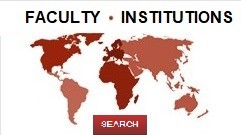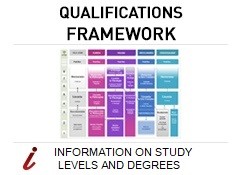Students
Ecclesiastical Universities/Faculties shall closely monitor students’ character and role in academic life. Attention towards students’ subjective nature has led to a greater awareness regarding their learning and active participation in the management of academic life (cf. Circular letter 3, 12 July 2005), prompted by their strong motivation to embark upon these kinds of studies and their passion for the future role for which they are preparing.
Required Certifications
Students, whether ecclesiastical, religious, or laity, can access Faculties if they are equipped with appropriate study qualifications (cf. Veritatis gaudium 31-32; Veritatis gaudium 26)
• regarding prior studies: original diplomas proving that students hold the qualifications that are required in order to be admitted into their countries’ civil Universities, or civil Universities of the region where the Faculty is located and/or, if students want to continue with the 2nd or 3rd cycle, appropriate academic degrees are required;
• furthermore, specific conditions or qualifications that are required by the Faculty where students enroll must be met or produced as well;
• regarding moral conduct: for clerics and seminarians, the certificate is issued by the Ordinary or his delegate;
• for the others, it is issued by Superiors or other ecclesiastical authorities.
Additional Requirements
Faculties, in turn, might lay down the following additional requirements, in order to admit students to their study curriculum:
• knowledge of both ancient and modern languages;
• admission tests, in order to verify students’ attitude towards the kind of studies they want to pursue, as well as the religious and intellectual motivations whereby they approach studies that must be completed in an ecclesial milieu by active and co-responsible individuals;
• a number of preparatory years, to bridge specific cultural or subject-related gaps, in order to achieve a minimum basis from which Students will make the most of Faculties’ Courses Supply.
In particular, regarding six-year philosophical-theological studies carried out in Seminaries or in other approved higher Institutes and duly completed by students, Faculties will specify under which conditions they might be admitted to the second cycle, taking completed studies into due account and, depending on the situation, ordering the completion of special courses and exams (cf. Veritatis gaudium norme speciali 59).
With respect to non-Catholic students, they can be admitted into an Institution of ecclesiastical studies only following a presentation written by a Catholic Church Authority who vouches for their moral righteousness and benevolent disposition towards the Church.
Faculty Transfers
In order to promote students’ mobility, and ensure their studies’ continuity and completeness, the transfer of students from one Faculty to another can take place only at the beginning of the academic year or semester, after a careful examination of their academic and disciplinary situation by the Dean. But in any event nobody can be given an academic degree unless all the requirements for the degree are fulfilled as the Statutes of the Faculty demand, and in order to be admitted to pursue the academic degree they require. Notwithstanding the fact that students cannot lose rights they have already acquired, the receiving Faculty must clearly determine what value is to be given to examinations taken elsewhere, especially in regard to being dispensed from some subjects or exams, or the reduction of the student’s curriculum, always, however, respecting the prescriptions of the Dicastery (cf. Veritatis gaudium 44).
Entry Visas
Sometimes students require entry visas into the countries where they would like to study, especially from non-European to European countries. Several ecclesiastical Universities/Faculties have introduced practices to facilitate mobility through different kinds of certifications which ascertain students’ will to enroll in such Universities/Faculties to pursue their studies. However, these certifications must be duly drafted, by acquiring all necessary information to ensure the reasons for transfer, its favorable outcome, and the successful execution of studies.
Student Ranks
In addition to ordinary students, who aim to obtain academic degrees, extraordinary students can also be admitted to attend courses, according to the norms laid down in the Statutes, as well as guests coming from other Faculties or Universities and mere auditors. Considering how challenging studies are, a person can be enrolled as an ordinary student only in one Faculty (cf. Veritatis gaudium 27).
Students’ co-responsibility
By joining an ecclesiastical University/Faculty, students first of all enter into a particular part of the Church, that is a Community that is characterized by personal relations that are pervaded by love and are aimed at a specific future task, in the Church and in society, for which they get prepared. By fully living the life of this particular community, they and all the people in it, are co - responsible for the common good and must strive to work for the institution's goals (cf. Veritatis gaudium 11 § 2). Active and responsible participation in the Faculty’s life and government is one of students’ rights and duties, in order to achieve the common good. They are prompted by the surrounding milieu to become involved as protagonists in the educational and formation process, and make themselves available to represent students in university bodies and also represent their university in relation to external Institutions.
Duties
As is the case in any human community, including the Church, students commit to «faithfully observe the laws of the Faculty about the general program and about discipline -- in the first place about the study program, class attendance, and examinations -- as well as all that pertains to the life of the Faculty» (Veritatis gaudium 33). Since the economic administration of this particular Community is an important factor for its sustenance, students are urged to contribute to expenses incurred therein by paying admission fees, yearly tuition, examination fees, and diploma fees (cf. Veritatis gaudium 60). Relevant Authorities will have to ensure that tuition fees do not keep away from academic degrees gifted students who give good hope of one day being useful to the Church and society. For this purpose, current tradition already provides for several existing forms of assistance (scholarships, student subsidies, etc.), through which students are helped with particular economic aids to pursue the studies they choose (cf. Veritatis gaudium norme applicative 47 § 1).





